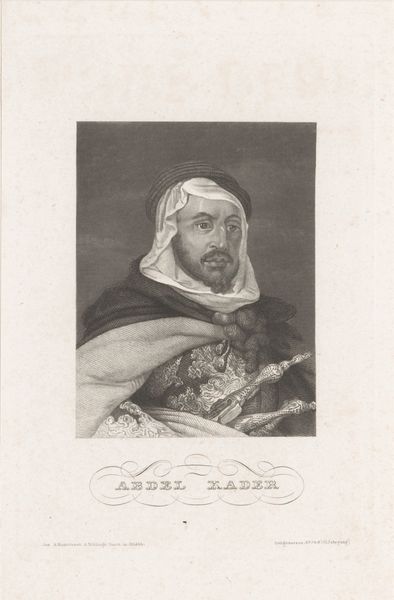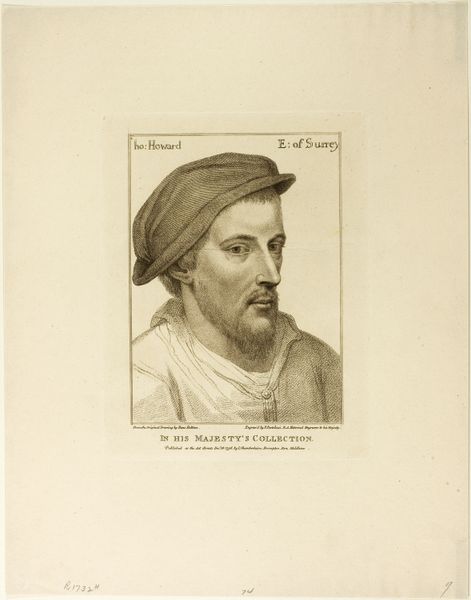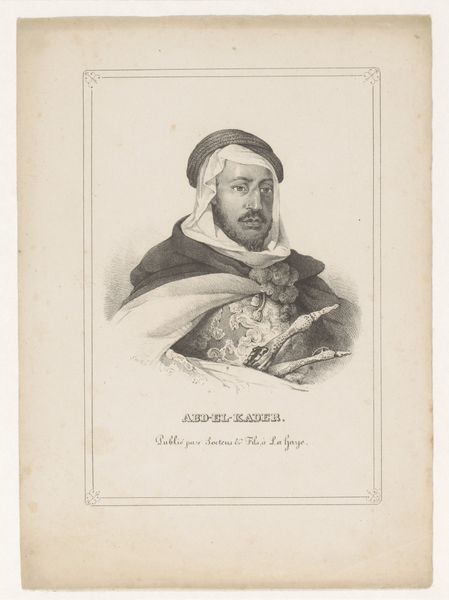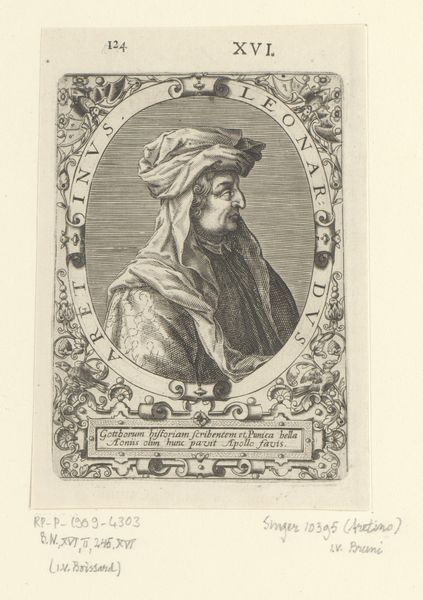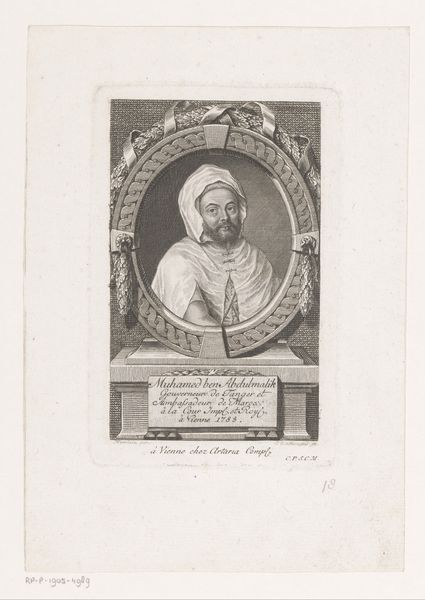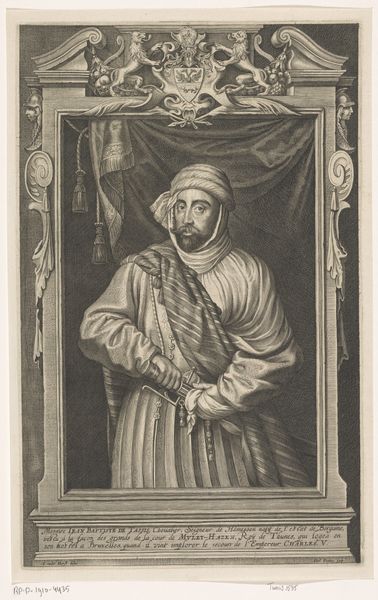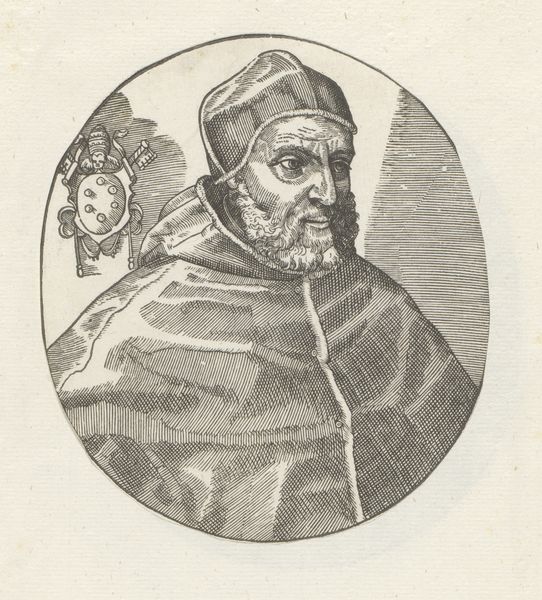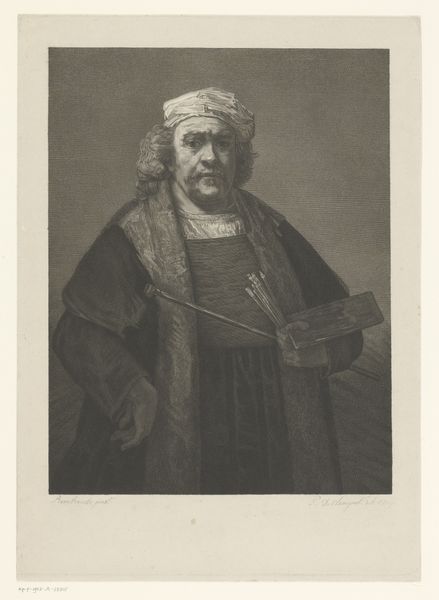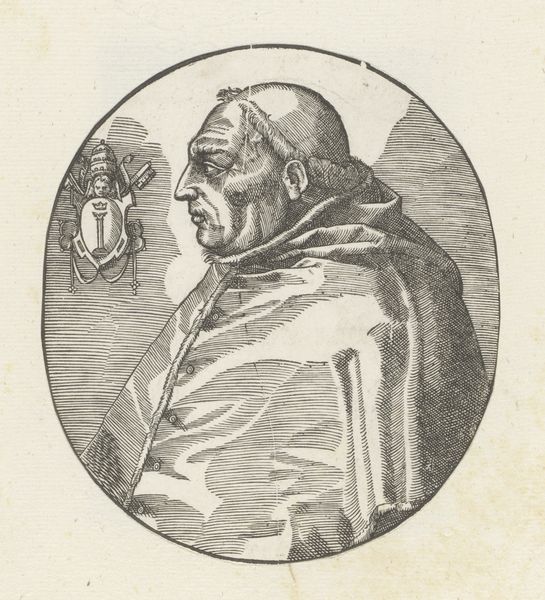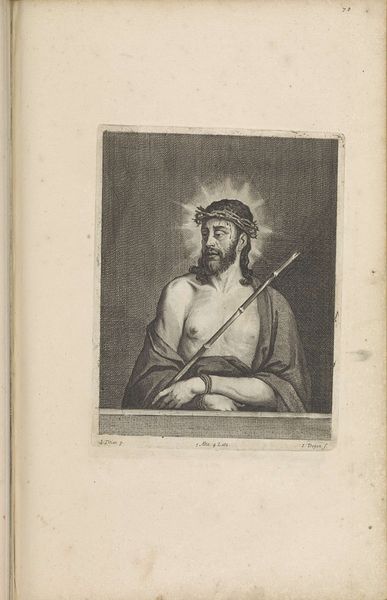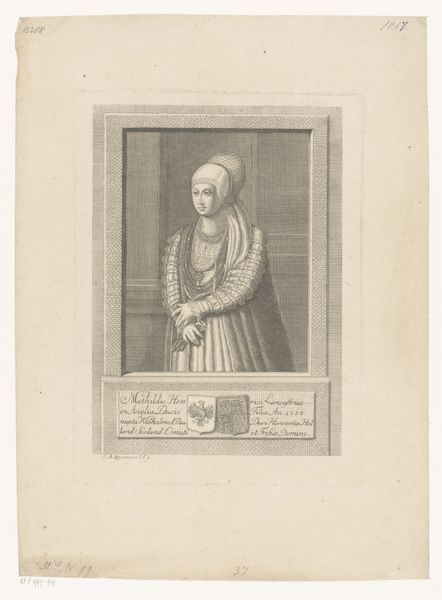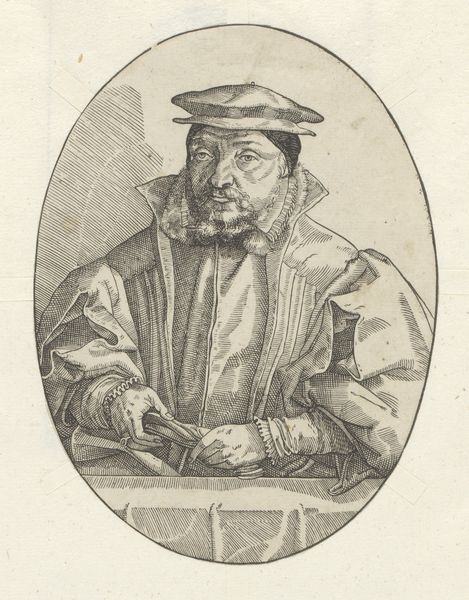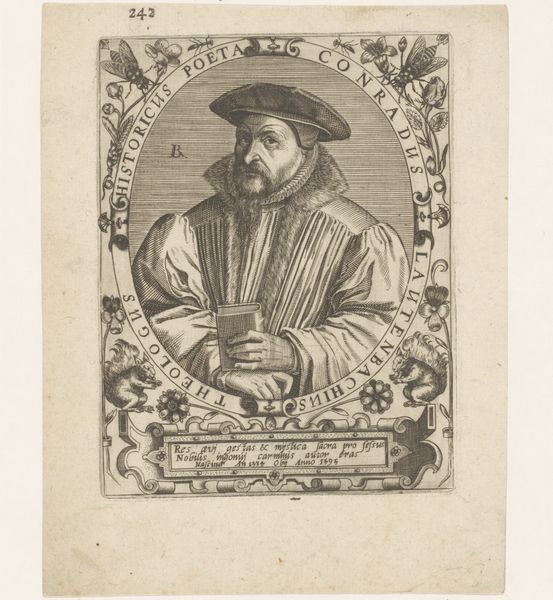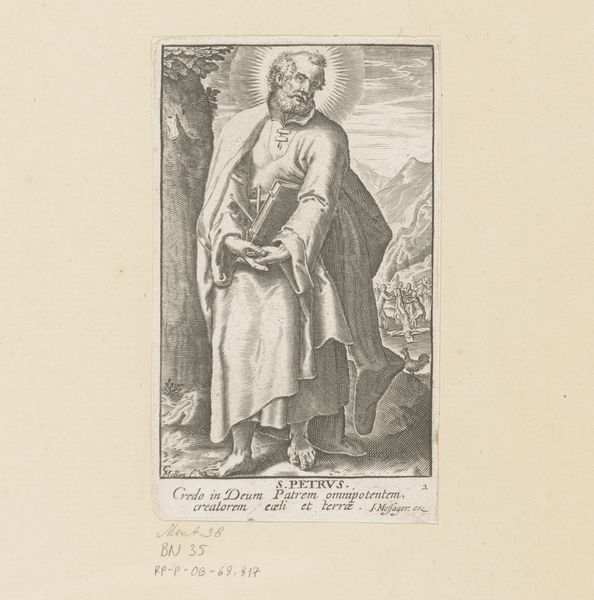
engraving
#
portrait
#
old engraving style
#
historical photography
#
islamic-art
#
history-painting
#
engraving
#
realism
Dimensions: height 244 mm, width 152 mm
Copyright: Rijks Museum: Open Domain
Editor: This engraving, titled "Portret van Abd el-Kader, bey van Mascara," dating from 1839 to 1868, presents a powerful figure with piercing eyes. It’s striking how formal and serious the portrait feels. How do you interpret this work in its historical context? Curator: Absolutely, this portrait of Abd el-Kader demands we consider the power dynamics at play. He was a key figure in resisting French colonialism in Algeria. The engraving itself, produced during and after his resistance, raises questions. Was it commissioned, seized, or circulated as propaganda? Its existence speaks to the complex relationship between colonizer and colonized. How does the European artistic tradition of portraiture intersect with, or perhaps, attempt to contain, Abd el-Kader's image and influence? Editor: So, you’re saying it’s more than just a picture of a person? It's really about power? Curator: Precisely! The details are deliberate. Look at his attire: it blends traditional North African garments with symbols that might appeal to European viewers. Is this a strategic self-representation or a European construction? And what about the choice of engraving – a medium easily reproduced and disseminated? It encourages us to think about representation, resistance, and the gaze itself. Who is looking, and what are they meant to see? Editor: It makes me consider how we often see historical figures through a lens shaped by those in power. It sounds like, in this case, examining that lens is really important. Curator: Exactly. Analyzing the choices made in this artwork provides valuable insight into how colonial narratives were constructed and circulated, allowing us to question the very foundations of historical representation. This one image opens up a whole conversation. Editor: It definitely does! I am leaving this conversation with a deeper appreciation for the image and with tools to analyze art more thoughtfully. Curator: Indeed. It prompts us to actively challenge how we understand history through art, urging us to become more critically aware viewers.
Comments
No comments
Be the first to comment and join the conversation on the ultimate creative platform.
